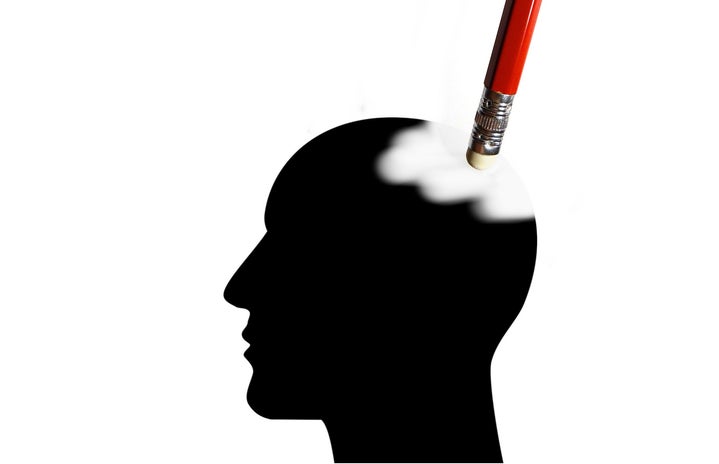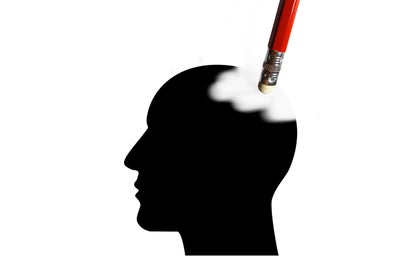Perhaps one of the greatest complexities of human existence is our memory, or our lack thereof.
To that point, memory is important, and even more important is taking the time to remember things. I recently had the pleasure of speaking with my grandparents, who I rarely get to see, and in our time together I learned great details about not only the childhood of my father, but also my grandparents and extended family members that I never had the chance to meet.
If you ever find yourself in a particularly contemplative mood, I propose you lend yourself to this concept of memory. I am sorry to admit that you would not be the first (nor last) to do so, for philosophers ranging from the times of Classical Antiquity to the Enlightenment have mulled over the concept of memory for many years. Plato established the importance of memory throughout philosophy, “regarding [the act of remembering] as the basis of knowledge”. John Locke assumed that what makes someone the same person as they were yesterday is that they can remember what they did yesterday, essentially predicating that memory is what differentiates human existence from that of a rock. Scary stuff, right?
Defining memory in itself is a challenge. The Oxford English Dictionary defines memory as “senses relating to the action or process of commemorating, recollecting, or remembering”. I think what truly struck me in this definition, however, was the example below this, in which the phrase, “an act of commemoration, [especially] of the dead” was scrawled in such a way that “especially” was originally abbreviated.
Commemoration of the dead – is that truly what the process of memory revolves around? Studies circulating the psychological realm point to the notion that our memories can change sporadically over time based on how they are accessed, meaning that even the act of rehearsing a memory can make it susceptible to change over time. If memory is the tool through which we preserve the “alive-ness” of the people and things that have passed away or been lost before us, what does it mean when the things we once thought we could remember could actually be subject to change? Personally, I have trouble just recalling what I had for breakfast earlier in the day, so the thought of preserving all the tiny details of my life in memory to keep it “alive” almost feels impossible, even hopelessly so.
Further, if memory is, as Locke and Plato assumed, that which roots humans in continuous existence, I find it just slightly troubling that memory can be altered (in the best case scenario), and falsely constructed (in the worst case scenario). Simply put, if the memories we have are not always accurate, how can we ever feel wholly sound about the life we have lived to this point?
Delineating a boundary between what embodies human memory from human existence can be muddled with complexity, and I write this not to bring upon a sense of existential dread, but as motivation. Although it is almost certain that some (if not most) of the tiny details in our life memories will be lost, I believe that there is great power in trying to preserve the memories we have now, while we are still able to.
Writing down a journal entry of the details that occur on the daily is a commonly used solution by those suffering from memory loss. However, in terms of seeking out memories of things that have already happened, such as our early childhoods, the early lives of our parents and extended family, and things that we might have simply been too young to remember, I must point towards a single solution: It’s time to confer with your grandparents.
In our recent conversation, my grandma told me that my father wanted Doc Martens desperately as a child. In a tragic twist of fate, the only size available was one that was far too small to fit him, yet he proceeded to buy them regardless. She told me that he walked around pigeon-toed in his new shoes, perhaps pinched but never prouder. She continued to tell me about her job working in a quiet bookstore as a teenager, how she took her pay straight out of the register at the end of her shift, and even told me about my grandpa’s sweeping long hair in his youth. Even more intriguing were stories about her mother and other relatives who had passed away before I ever had the chance to know them.
It is in this sense that I think the Oxford English Dictionary might be onto something. Memory does embody a commemoration of the dead, whether it is relatives who have passed away, places we have left, or things that we once did but have since stopped. It is in this remembrance that they do exist, someplace between the jumbled idiosyncrasies of our brains that make each of us the existing person that we are.
I find great joy in finding an old journal from grade school, where I am able to get a glimpse of the person I once was, and who I still hold in me through these recorded memories. I find even more joy from hearing stories from my grandparents, listening to their years of wisdom come alive in the things that they remember and hold within.
Although there may be no way around the false recollection of memory, there are still ways to hold onto each day. As Locke once stated, “Memory is the power to revive again in our minds those ideas which after imprinting have disappeared, or have been laid aside out of sight”. This revival is remembering, and this remembering is life … and I think it is complex, beautiful, and scary, all at the same time.


